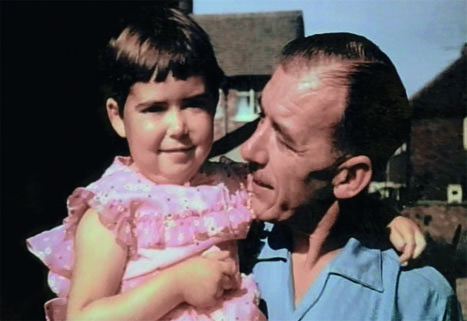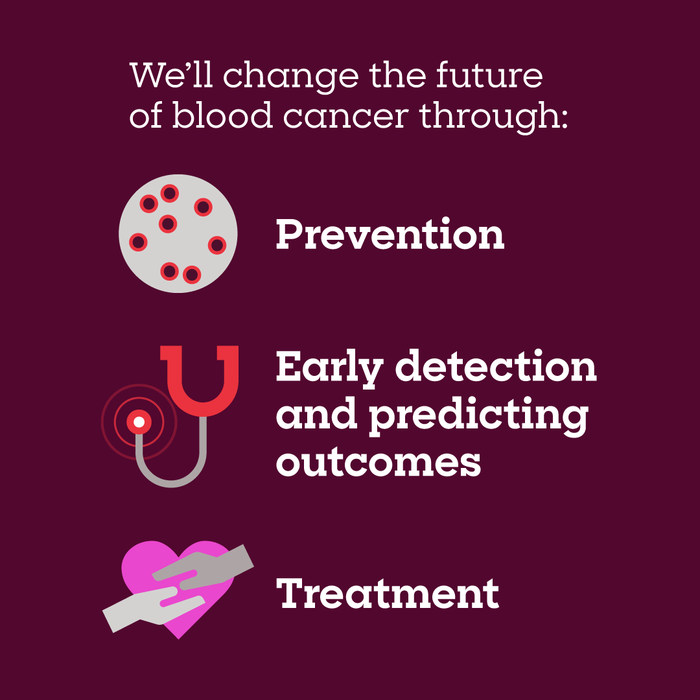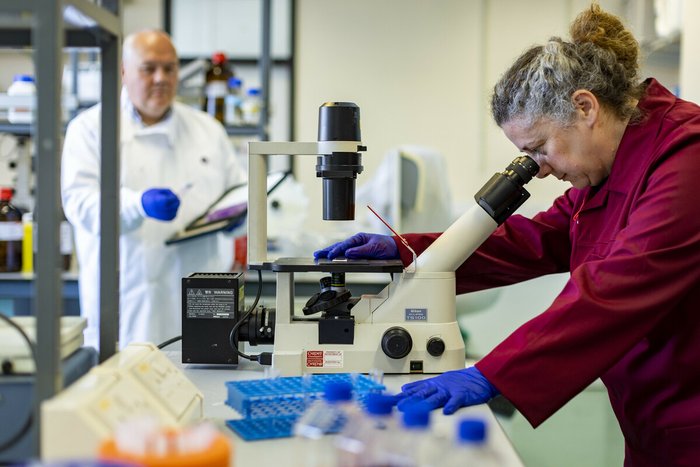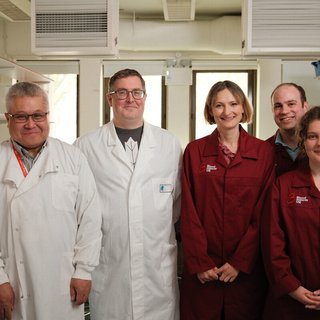We’ve come so far, but we’re not done yet: accelerating progress through blood cancer research
United Kingdom
When six-year-old Susan Eastwood was diagnosed with leukaemia, a blood cancer, and died just weeks later, her parents, David and Hilda, were devastated. They were also determined that something positive would come from their daughter’s death. Blood Cancer UK, as it is now, was born.

Susan and her dad David.
In 1960, just one in ten children with Susan’s type of leukaemia survived. Today, the survival rate is 9 out of 10. The progress we’ve made with blood cancer in just the last ten years alone would have seemed unbelievable when our charity began.
In the last 10 years we’ve greatly improved our understanding of blood cancer and the treatment options that are available.
Behind every life saved, behind every world-first treatment, behind every groundbreaking clinical trial, is research.
It’s researchers’ collective effort that fuels the successes we see in the laboratories and hospitals around the country. But even against this backdrop of rapid progress, there is still more to do.
From blood cancers where survival remains stubbornly low, to treatments with toxic side-effects. Blood cancers including leukaemia, lymphoma and, myeloma are still taking too much from us and killing too many people. And for many, treatment remains brutal and life-altering.
Our research ambitions must be bold if we are to get to the day when no one dies of their blood cancer or treatment. So, we’re launching a new research strategy outlining our funding priorities for the next critical period.

We’ll focus on three core areas.
One will be prevention, to identify people at high risk of developing blood cancer and find ways to prevent them having to go through blood cancer at all. Because we need to understand how to identify people at risk of getting blood cancer and stop it developing.
The second will be early detection and predicting outcomes. To help everyone to get an early diagnosis, and predict what the future might hold for them. Because people need to know what they’re facing quickly so they can get the right treatment, sooner.
And finally treatment. To develop new treatments and improve existing ones, so that we can prevent relapse and progression. Because we need treatments that are kinder, more effective and that can cure blood cancer for good.
All this, and we will never compromise on funding high-quality science that matters to people affected by blood cancer.

To make this happen we will invest at least £70 million over the next five years.
We’ll also invest in innovative clinical trials to find treatments for the least survivable blood cancers and address inequalities in blood cancer survival between different groups.
We’re fortunate in the UK to be a centre for world-leading blood cancer research. In part it’s thanks to our supporters. Throughout our 65-year history we’ve supported the careers of some of the most influential scientists in the UK, supporting 468 scientists whose work has changed the lives of countless people with blood cancer.
Our research will fund world-class discovery, translational, and clinical research across all types of blood cancer. We’ll continue to strengthen the UK blood cancer research community, form new strategic partnerships and develop future research leaders
As the funding landscape changes, we’ll continue to change and respond with it, capitalising on the opportunities scientists face.
Our goal is simple but urgent: No one should die from their blood cancer or its treatment.
We have the plan, the expertise, and the determination to transform research. This is how we’ll accelerate progress. This is how we’ll save more lives.
Because together we are the generation that will beat blood cancer.

